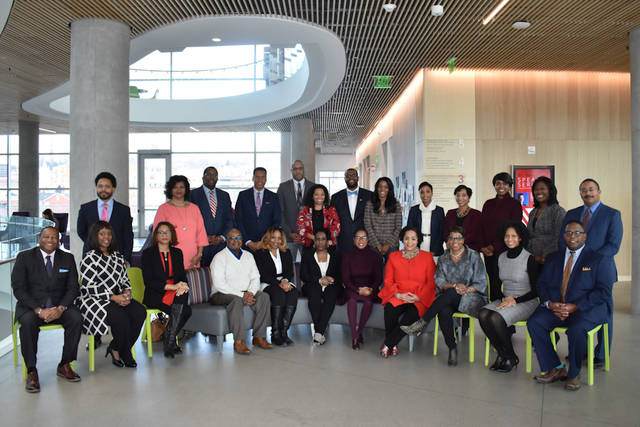Building on its work to develop the professional class of Black leaders in Pittsburgh, The Advanced Leadership Initiative has become a freestanding nonprofit organization with the same initials — TALI — but with a slightly new name: The Advanced Leadership Institute.
Established in 2016, TALI has been proponent in achieving a greater diversity in corporate Pittsburgh, helping to establish a higher rate of retention for Black professionals in executive levels of leadership.
The expansion will allow the classes to better guide participants in organizational culture, resilience training and defining leadership identity. It will also include a larger regional programming network for participants in their future careers; continued development of TALI’s alumni network; and the advancement of corporate diversity equity and inclusion (DE&I) initiatives though partnerships.
Classes consist of a combination of workshops, seminar, and one-on-one mentoring in a part-time schedule. The program runs from October through April at Carnegie Mellon University. Applications are being accepted through the institute’s website, taliinstitute.org.
“Establishing TALI as an institute will provide sustainability and make a strong impact on our program participants,” said Evan Frazier, president and CEO of The Advanced Leadership Institute.
The leadership team at TALI has expanded along with the institute, adding three new members: Gerard C. Adore, vice president of finance and administration; Shelly D. Hammond, vice president of programs; and Jeanean White, executive assistant and business administrator.
“Each of these talented individuals bring to the table a track record of success and a willingness to use their experiences to grow The Advanced Leadership Institute,” Frazier said.
TALI plans to use its new Emerging Leaders Program to achieve a deeper focus on Black professionals currently in self-management or mid-level manager roles, which they hope will make the organization more effective.
“It feels wonderful to see TALI transform itself from initiative to institute. I clearly remember it being just a concept, relatively untested but desperately needed and full of promise,” said Frazier.
Now, as a result of grants from BNY Mellon Foundation of Southwestern Pennsylvania, Highmark Foundation and the Richard King Mellon Foundation, the institute intends to further advance inclusivity in corporate Pittsburgh.
“Our investment in TALI is driven by BNY Mellon’s commitment to diversity. As TALI expands its efforts to cultivate Black leadership, we see this as an investment that will strengthen corporations and ultimately strengthen our communities,” said TALI board member Eric Boughner, who’s chairman of BNY Mellon Pennsylvania and chair of the BNY Mellon Foundation of Southwestern Pennsylvania.
Sam Reiman, director of the Richard King Mellon Foundation, said, “We made the decision to invest in TALI because we understand the importance of creating greater corporate diversity at executive levels. With its recent expansion, TALI is uniquely positioned to be a catalyst for change in our region and have impact across the country,”
Frazier cited the importance of “having Black professionals in leadership roles within Pittsburgh. It will send a signal to others that we have a vibrant community where everyone can grow and prosper. The success of our city hinges on our ability to grow our regional population.”
The institute is aiming to build on the results of its 2019 and 2020 classes. Of the pioneering 2019 group, 74% received promotions and higher responsibilities after participating, and in the following year, 50% received promotions and higher responsibilities. More than 90% expressed enhanced confidence in their leadership abilities in their fields, and more than 80% felt participating in TALI better cultivated and developed leadership skills.
Chinedu Okorafor, a senior vice president and head of retail technology operations at PNC, participated in the 2020 class.
“TALI has been an eye-opening experience for me, with world-class faculty sharing the science behind inequalities and the overall impact on Black professionals,” said Okorafor, who joined PNC in 2017. “The relationships I’ve developed through the program and this connection to a community of Black professionals will stay with me forever.”











